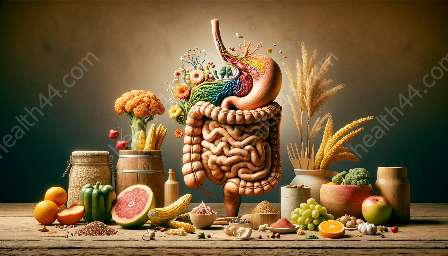Food groups play a crucial role in nutrition and health. They provide essential nutrients that support the body's functions and promote overall well-being. By understanding the benefits of different food groups and how they contribute to a balanced diet, individuals can make informed choices about their eating habits. This topic cluster delves into the various food groups and their impact on nutrition and health, highlighting the importance of incorporating a diverse range of foods for optimal well-being.
The Importance of Food Groups
Foods are categorized into groups based on their nutritional content, and each group offers unique benefits:
- 1. Vegetables and Fruits: These are rich in vitamins, minerals, and fiber, which are essential for maintaining good health. They also contain antioxidants that help protect the body from diseases.
- 2. Grains: Whole grains provide energy and essential nutrients such as fiber, B vitamins, and minerals. They are an important source of carbohydrates, which fuel the body and support brain function.
- 3. Protein Foods: These include meat, poultry, fish, beans, nuts, and seeds. They are rich in protein, which is vital for building and repairing tissues, as well as for supporting the immune system and hormone production.
- 4. Dairy: Dairy products are excellent sources of calcium, which is essential for bone health, as well as protein and other nutrients.
- 5. Fats and Oils: While high in calories, fats and oils are necessary for the absorption of certain vitamins and the proper functioning of the body.
The Role of Food Groups in Nutrition
A balanced diet that includes a variety of foods from all the food groups is essential for obtaining the nutrients the body needs to function optimally:
- 1. Vegetables and Fruits: These provide a rich source of vitamins, minerals, and fiber, promoting digestive health, supporting the immune system, and reducing the risk of chronic diseases.
- 2. Grains: Whole grains are a valuable source of energy and essential nutrients, contributing to heart health, digestive health, and weight management.
- 3. Protein Foods: Protein is crucial for building and repairing tissues, supporting muscle function, and maintaining a healthy immune system.
- 4. Dairy: Dairy products are essential for bone health and provide vital nutrients for overall well-being.
- 5. Fats and Oils: Healthy fats are necessary for brain function, hormonal balance, and the absorption of fat-soluble vitamins.
Impact of Food Groups on Health
Consuming a variety of foods from different food groups can have a profound impact on overall health:
- 1. Vegetables and Fruits: Regular consumption of these foods can lower the risk of heart disease, stroke, and certain types of cancer. They also contribute to healthy skin, eyes, and digestion.
- 2. Grains: Whole grains are associated with a reduced risk of chronic diseases such as heart disease, diabetes, and some types of cancer. They also support weight management and digestive health.
- 3. Protein Foods: Adequate protein intake supports muscle mass, strength, and recovery. It also plays a role in hormone production and immune function.
- 4. Dairy: Dairy products promote bone health, reduce the risk of osteoporosis, and support dental health.
- 5. Fats and Oils: Healthy fats are linked to a lower risk of heart disease, improved brain function, and better cholesterol levels.
Creating a Balanced Diet
Guidelines for incorporating food groups into a balanced diet:
- 1. Vegetables and Fruits: Aim to fill half your plate with fruits and vegetables at each meal. Choose a variety of colors and types to ensure a wide range of nutrients.
- 2. Grains: Make at least half of the grains you consume whole grains, such as brown rice, quinoa, and whole wheat bread.
- 3. Protein Foods: Opt for lean protein sources like poultry, fish, beans, and nuts. Limit intake of red and processed meats.
- 4. Dairy: Choose low-fat or fat-free dairy products to minimize saturated fat intake while still obtaining essential nutrients.
- 5. Fats and Oils: Select sources of healthy fats, such as avocados, nuts, and olive oil, while minimizing intake of trans fats and saturated fats.
By following these guidelines and incorporating a variety of foods from different food groups, individuals can create a balanced diet that promotes optimal nutrition and supports overall health.




























